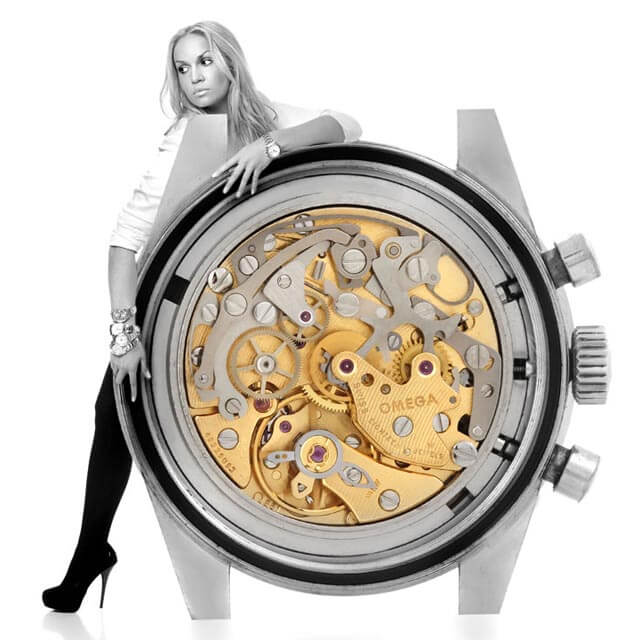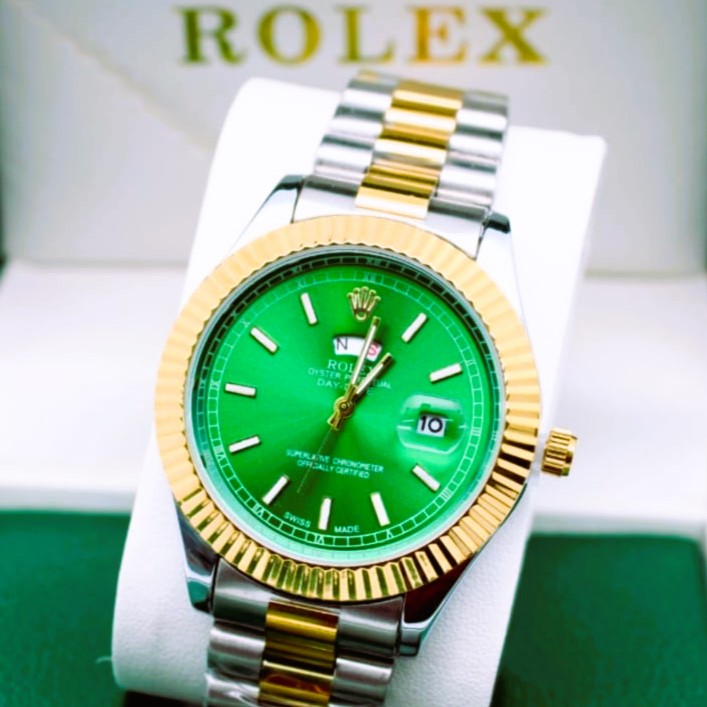Introduction to Watch Movements
When shopping for a timepiece, the type of watch movement is crucial. It drives the watch hands or display and keeps time. There are two main types of watch movements: mechanical vs quartz watch. Each has unique features that appeal to different preferences and needs.
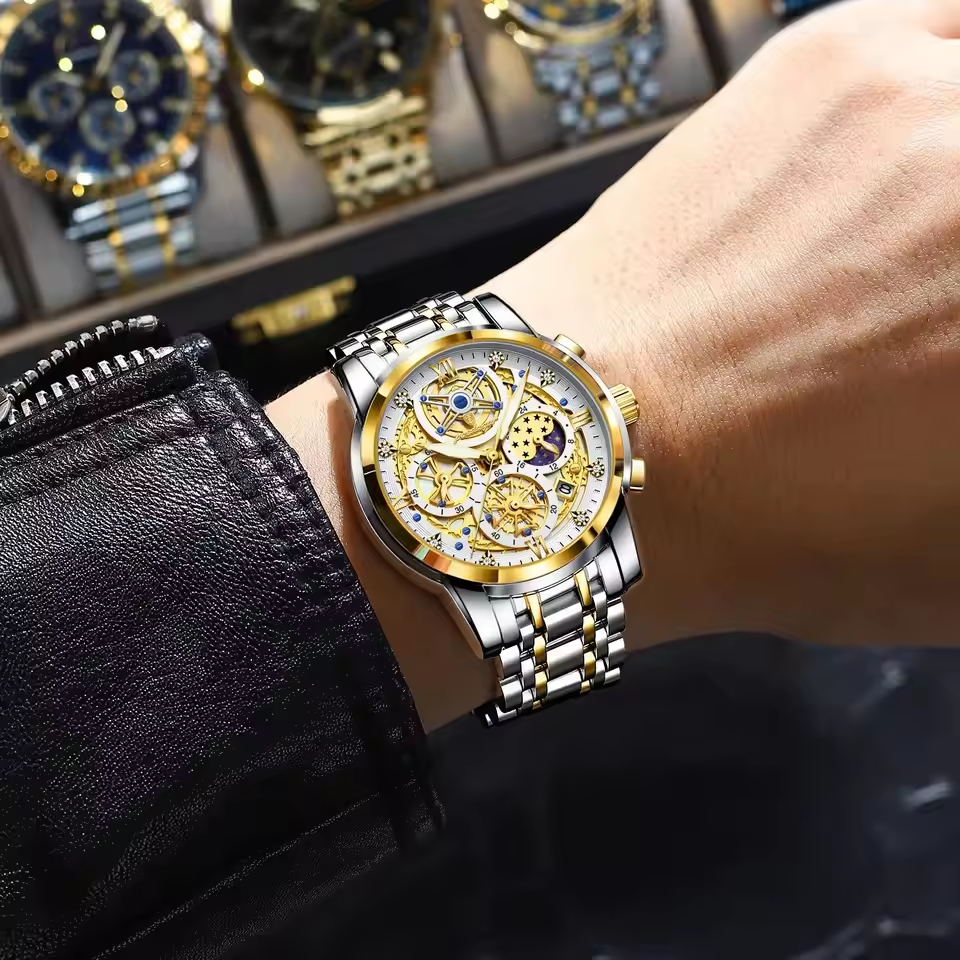
Key Types: Quartz and Mechanical
Quartz movements use a battery and a quartz crystal. The battery sends an electric current through the crystal, causing it to vibrate. This vibration keeps the time with great accuracy. Quartz watches are known for being reliable, low-maintenance, and affordable.
Mechanical movements, on the other hand, are powered by a wound spring. They use gears and other mechanical parts to keep time. These watches do not need batteries. They may need winding – either manually or automatically by the wearer’s movement. Mechanical watches are admired for their craftsmanship and traditional appeal but require more upkeep than quartz.
Choosing between mechanical vs quartz watch types is no simple task. Consider accuracy, maintenance, design, and cost. Keep these factors in mind as you explore the intricacies of each movement type in the following sections.
How Quartz Watches Work
Quartz watches operate using a simple yet effective mechanism.
Power Source and Timekeeping
The heart of a quartz watch is its battery. This battery sends an electrical current through a small, synthetic quartz crystal, making it oscillate. These oscillations occur at a very stable frequency, usually 32,768 times per second. This consistent vibrational frequency is what makes quartz watches incredibly accurate.
The watch’s circuit measures these vibrations and converts them into regular electric pulses, one per second. These pulses make the watch hands move or power a digital display, showing accurate time. Thus, quartz watches maintain precision in timekeeping with minimal maintenance required. With such a direct power source and timekeeping process, these watches can last years before needing a battery replacement.
How Mechanical Watches Work
Understanding the mechanics behind these timepieces can enhance appreciation for their craftsmanship.
Movement Mechanisms and Energy Sources
Mechanical watches harness energy from a wound spring inside the watch. This spring, when wound, stores energy. As it unwinds, it releases energy gradually. This energy powers the watch’s gears and hands. No batteries are involved. Mechanical movements fall into two categories: manual and automatic. Manual types need hand winding by the crown. Automatic versions wind themselves with the wearer’s wrist movements. Intricate gears and a balance wheel help distribute this energy evenly. This creates the watch’s ticking motion. Each tick is a measure of time passing. The engineering precision of these parts ensures the watch keeps time. But mechanical watches may lose or gain a few seconds daily. Because of their complex workings, mechanical timepieces exude classic charm. They require regular servicing to keep them running smoothly. Unlike quartz, their accuracy depends on consistent maintenance and careful handling.
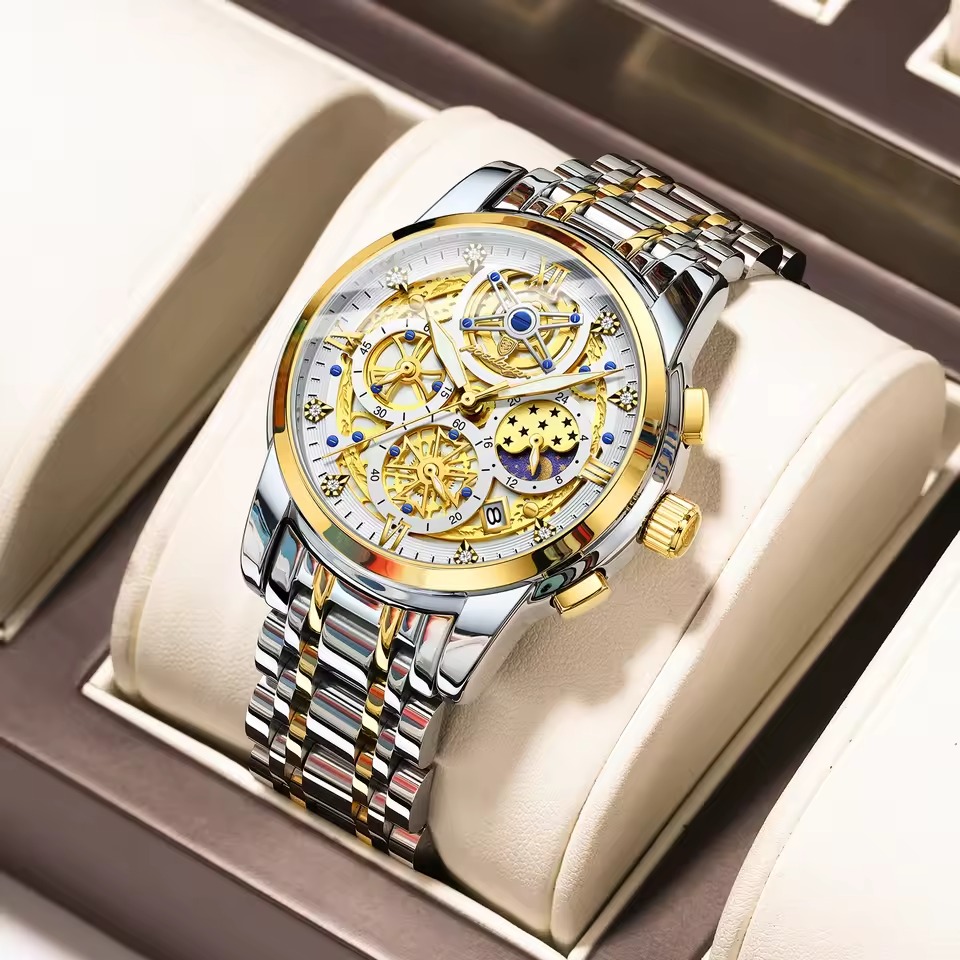
Comparing Accuracy
Precision in Timekeeping: Quartz vs Mechanical
When it comes to timekeeping, accuracy is key. So, how do quartz and mechanical watches compare?
Quartz watches are known for their remarkable precision. The vibration of a quartz crystal ensures that these watches usually lose only a few seconds each year. This level of accuracy stems from the crystal’s high vibrational frequency, which is measured and translated into time by the watch’s circuitry.
Mechanical watches, by contrast, rely on a balance wheel and gears. These components create the ‘tick-tock’ of a watch. However, they can be affected by many factors like temperature, orientation, and even the wearer’s activity. As a result, a mechanical watch might gain or lose several seconds over the course of a day. This doesn’t mean they are highly inaccurate; a well-maintained mechanical watch can still be precise enough for everyday use.
In summary, if exact, second-by-second accuracy is what you need, a quartz watch might be your best bet. For those who appreciate the artistry of watchmaking and can accommodate slight deviations in time, a mechanical watch holds appeal. Both types of watches meet the average person’s needs for timekeeping, but quartz watches win the race in precision.
Durability and Maintenance Needs
Lifespan and Servicing Requirements for Each Type
When considering a watch, durability and maintenance are crucial factors.
Quartz Watches: These watches are generally more durable due to fewer moving parts. They are less susceptible to wear from daily activities. The primary maintenance for quartz watches involves battery replacements. This usually occurs every 2 to 5 years, depending on the model. Besides battery changes, quartz watches may rarely need servicing unless damaged.
Mechanical Watches: Mechanical watches showcase enduring craftsmanship. However, their complex internal mechanisms require more attention. They need regular servicing to function optimally. This servicing might include cleaning, oiling, and part replacements. Typically, a mechanical watch should be serviced every 3 to 5 years. Over time, without proper maintenance, a mechanical watch can slow down or stop working.
In terms of longevity, quartz watches can last many years with minimal upkeep. Mechanical watches, if cared for properly, can last a lifetime and sometimes become family heirlooms. Both types offer good durability, but quartz watches might edge out for those seeking minimal maintenance. For enthusiasts who value tradition and craftsmanship, and don’t mind the upkeep, mechanical watches are appealing.
Aesthetic and Design Considerations
When selecting a watch, aesthetics play a pivotal role. It’s not just about functionality; the watch’s design matters too. Here, we delve into the style differences that distinguish quartz from mechanical watches.
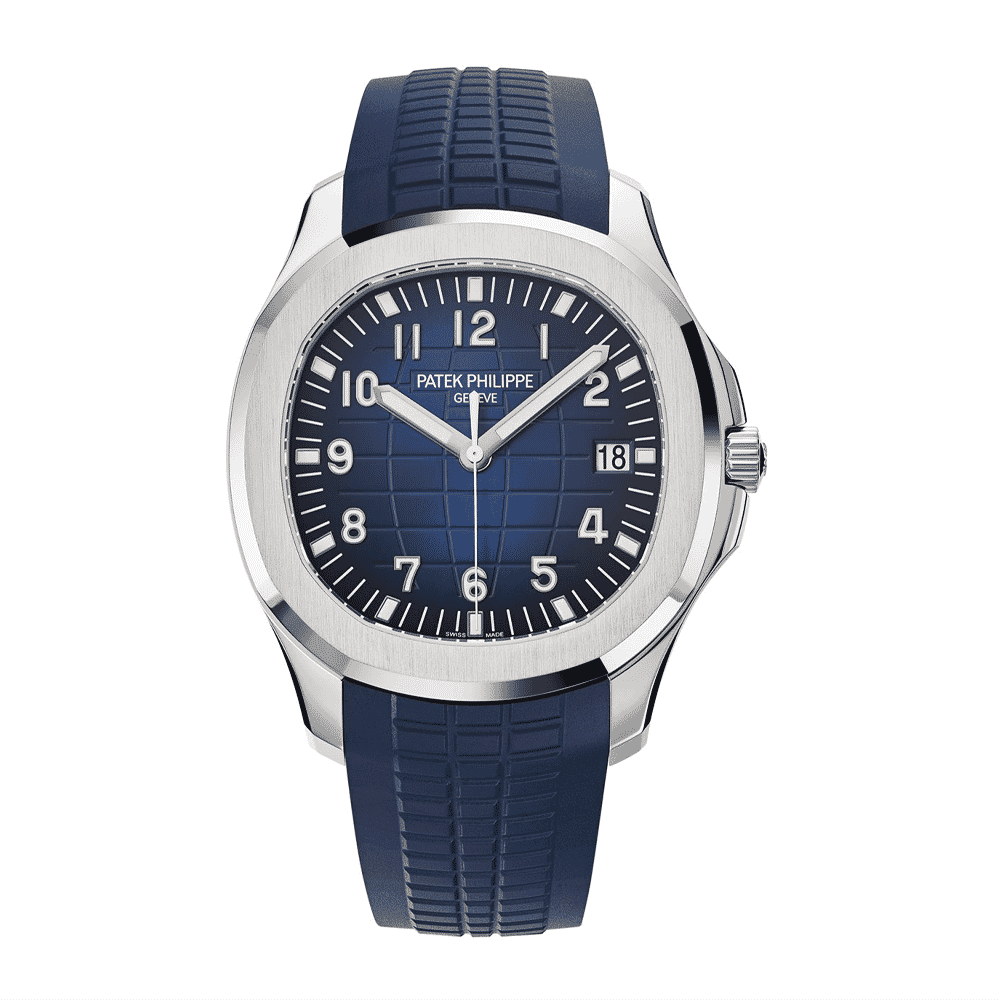
Style Differences Between Quartz and Mechanical Watches
Quartz and mechanical watches exhibit distinct design characteristics that cater to varied tastes.
Quartz Watches: Often sleek and modern, quartz watches can present a more contemporary look. Their simpler internal structure allows for thinner and sometimes more minimalist designs. From dress watches to sports models, quartz timepieces can fit seamlessly into everyday life with a variety of styles, including digital displays.
Mechanical Watches: These timepieces are synonymous with classic elegance. Their designs frequently feature see-through cases, showcasing the intricate workings inside. Mechanical watches often exude old-world charm and a sense of luxury, especially given the detailed craftsmanship involved. Collectors and connoisseurs tend to gravitate towards them for their traditional analog displays and the artistry they represent.
Quartz watches often lean towards practicality in design, while mechanical watches prioritize heritage and craftsmanship. Each carries a unique allure that speaks to the wearer’s personal style. Whether you value high-tech precision or artisanal skill, your choice will be reflected in the watch’s aesthetic.
Cost Implications
When you’re in the market for a new watch, understanding cost implications is vital.
Initial Purchase and Long-term Maintenance Costs
Quartz Watches: These are generally more affordable upfront compared to mechanical watches. The manufacturing process is less intricate, often leading to a lower price tag. When it comes to long-term costs, quartz watches typically need only battery replacements. These are relatively inexpensive, making the overall ownership cost lower.
Mechanical Watches: Initially, you might spend more on a mechanical watch. They boast complex designs with hand-assembled parts, contributing to a higher cost. Over time, the maintenance costs can add up. Servicing includes cleaning, oiling, and possibly replacing parts. This can be costly, ranging between several tens to hundreds of dollars every few years.
For those on a budget, quartz watches can offer a balance of performance and cost-efficiency. If you’re willing to invest in craftsmanship and heritage, a mechanical watch’s value may justify its higher maintenance. Keep in mind, a well-cared-for mechanical watch can last generations, potentially outweighing its initial and upkeep costs.
Making the Right Choice
When faced with the decision between a mechanical vs quartz watch, several factors come into play. Understanding these can guide you to the timepiece that best fits your lifestyle, preferences, and budget. Let’s explore some key considerations.
Factors to Consider When Choosing Between Quartz and Mechanical
Personal Style: Consider if you prefer a modern or classic look. Quartz watches lean towards a contemporary design while mechanical ones offer traditional elegance.
Maintenance Willingness: Quartz watches require less care, usually just a battery change. Mechanical watches need regular servicing to maintain their performance.
Accuracy Needs: If precision is paramount, quartz is likely your best choice. They typically lose only seconds a year. Mechanical watches can be less precise day-to-day.
Budget Constraints: Quartz watches are generally cheaper both upfront and over time. Mechanical watches, while often pricier, carry a legacy and intricate design valued by collectors.
Frequency of Use: If you plan to wear your watch daily, a mechanical watch can be a pleasure to use and maintain. For occasional use, quartz might be more convenient.
Resale Value: Mechanical watches often have a higher resale value, a consideration for collectors or those viewing their purchase as an investment.
Longevity Expectations: Do you want a watch that lasts a few years or a lifetime? Quartz watches are durable over years, while mechanical watches can last generations with proper care.
Your choice between a mechanical vs quartz watch should align with your daily routine, style preference, and long-term expectations. Both have their merits, so consider which factors are most important to you and let that guide your decision.
